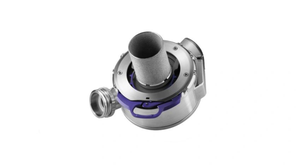September 24, 2013
When contracting out its molding needs, the medical device OEM should partner with a supplier that has expertise with precision injection-molding machines, process monitoring technology, micromolding, and tooling. Brian Higgins, vice president of sales and marketing at Sil-Pro (Delano, MN), explains why.
MPMN: What challenges do medical device OEMs face when selecting a molding service provider?
|
Brian Higgins |
Higgins: FDA is increasingly pushing OEMs to ensure that products stemming from suppliers meet higher quality requirements. Contract manufacturers ensure high quality standards to OEM customers by implementing quality systems and procedures and by developing the mindset that they should qualify their processes using Six Sigma techniques, including MSA, ANOVA Gauge R&R, DOE, and process validation. Only a limited number of molding service providers to the medical device industry offer these capabilities when qualifying new tooling and components. Other challenges OEMs face include choosing a molder that can quickly and efficiently take a project from the development and prototype stages into full production. To do so, the supplier must be able to provide design, development, and production expertise.
MPMN: What materials and equipment skill sets should the medical device OEM expect a contract molder to master?
Higgins: The OEM should select a molding contract manufacturer that can offer scientific molding process development. In addition, the supplier should run precision injection-molding machines with the latest process monitoring technology, including RJG in-cavity pressure sensors and online process adjustment. And the OEM should partner with a supplier that has experience working with engineering-grade resins, such as PEI, PEEK, PSU, and PESU. Molders should be able to offer these capabilities to customers to expedite new-product development and to provide design for manufacturing expertise.
MPMN: What are the latest trends in medical device molding that should be uppermost in the OEM's mind?
Higgins: The push for vertical integration of the supply chain is the latest trend, and the contract manufacturer should be able to provide it. By mastering in-house tooling, automation, and equipment used to perform secondary operations, molders can eliminate the need to outsource to multiple suppliers. Another trend is the push for micromolding and the accompanying metrology needs. The contract manufacturer should be able to mill hardened Type 420 stainless-steel mold cavities using 0.004-in. diameter end mills in-house, micromold parts from this tooling with precision injection-molding presses while guaranteeing excellent shot control, and use both contact and noncontact metrology equipment capable of <20% ANOVA Gauge R&R or tighter tolerances. In addition, the medical device molding arena is witnessing the use of 3-D printing prior to the creation of the steel tool.
About the Author(s)
You May Also Like

.png?width=300&auto=webp&quality=80&disable=upscale)

